Indian government’s six confidence ‘breaking’ measures in Kashmir
Almost 87 civilians and three policemen have died in 74 days
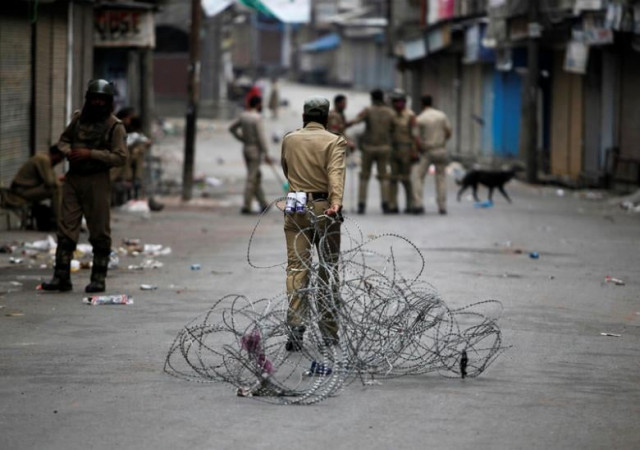
An Indian policeman pulls concertina wire to lay a barricade on a road during a curfew in Srinagar July 12, 2016. PHOTO: REUTERS
Peace talks impossible with gun in Pakistan’s hand, says India
The ruling Peoples’ Democratic Party also sought similar measures before present Chief Minister Mehbooba Mufti agreed to continue her party’s alliance with right-wing Bharatiya Janata Party last year. However, the Government of India along with the Government of Jammu and Kashmir recently announced some confidence ‘breaking’ measures to crush the uprising.
Disputed nature of Jammu and Kashmir
The Government of India hardened its stand of terming Kashmir its “internal” issue. Prime Minister Narendra Modi on August 22 expressed need for a dialogue and finding a “permanent and lasting solution to the problem”. Even though he wants the dialogue to be “within the framework of Indian constitution”, he agrees that the problem exists. Chief Minister Mehbooba Mufti on August 25 said 95% of state subjects want a peaceful solution through dialogue. But the primary problem remains sandwiched in a riot of metaphors. Indian lawyer, historian and author, AG Noorani, recently wrote, “Politicians are prone to use [metaphors] to conceal their purpose or lack of it and deceive the people.” Kashmir is an internationally recognised dispute between India and Pakistan since 1947 and the United Nations Security Council has passed a resolution on it, but still India disagrees to accept its disputed nature.
A larger military presence
Kashmir is the world’s largest militarised zone and estimates put the troop-count between half-a-million and one million on the Indian side. Military is accused of massacre, extrajudicial killings, enforced disappearances, torture and mass rape. In the ongoing uprising, armed forces thrashed young men to death, went berserk in residential areas and opened fire on protesters and stone-pelters. Despite growing discontent against military action, militarisation continues to grow. For instance, the army moved one additional brigade with three-infantry battalions to south Kashmir in mid September. Similarly, additional deployment of paramilitary forces occupied several government schools in Srinagar in late August. South Kashmir saw several massive peaceful pro-freedom rallies for a month but the fresh deployment of forces, under the operation ‘calm down’, has caged people in their homes, disallowing any such rally anymore.
General Raheel sends clear message to hawkish India
Draconian laws
Armed Forces (Special Powers) Act (AFSPA) was enacted in Jammu and Kashmir in 1990 as armed insurgency intensified. The law gives complete impunity to armed forces to shoot a person on mere suspicion and arrest anyone or search any place without a warrant. Most importantly, there can be no prosecution, suit or any other legal proceeding against anyone acting under the law. Amnesty International, in a recent report, stated the Indian Government has dismissed 96% complaints against the army since 1993, and accused the government forces of committing human rights violations in Kashmir.
Another draconian law – Public Safety Act (PSA) – has been termed by the Amnesty International a “lawless law”. It allows upto two-year detention without any charge or judicial trial. The law was enacted in the state in 1978 to be used against timber smugglers, but Amnesty says 8,000 to 20,000 people have been detained under the law since 1991. Rather than misusing the law anymore, the government decided to book 169 people under the law in late August. Government accused them of being “organisers and provocateurs” in the current uprising. Even noted human rights activist Khurram Parvez was booked under the law on September 21 even though his ‘preventive detention’ received international condemnation.
More political prisoners and no dialogue
As a confidence building measure, Geelani asked the government to release all political prisoners from detention centres and house arrest, and restore their right to free political activity. In reality, the opposite happens; separatist leaders remain imprisoned and have no right to hold public rallies or lead a protest march. Since the ruling government assumed power, Geelani has continuously been under house detention. Mirwaiz Umar Farooq and Muhammad Yasin Malik, two other senior unarmed separatist leaders, have been jailed. Geelani was not even allowed to hold a press conference at his residence on September 9. No major congregation was allowed in Srinagar on Eidul Azha. Strict curfew remained imposed across the Kashmir valley on the day and mobile telephony and all internet services remained snapped for five days.
The all-party parliamentary delegation led by Home Minister Rajnath Singh which recently visited Kashmir did not specifically invite the separatist leaders for talks but vaguely announced their willingness to talk to anyone. Mufti, in her capacity as her party president and not as the chief minister, in an open letter to the separatist leaders appealed them to engage in dialogue with the delegation. However, the separatist leaders denied, citing the earlier dialogues did not yield any results.
No foreign observers
Among his demands, Geelani asked free access for UN Special Rapporteurs and all international human rights and humanitarian organisations to work in Jammu and Kashmir. What followed is that India turned down the request by the UN High Commissioner for Human Rights, Zeid Al-Hussein, for access to Indian-administered Kashmir, while at the same time, Pakistan agreed for access to its part of Kashmir. Indian Ministry of External Affairs said, “It was unanimously felt that the Indian democracy has all that is required to address legitimate grievances.” Not allowing international delegations on a fact-finding mission further alienates the already-agitated people in Kashmir.
Indiscriminate ops to continue: COAS
No freedom of speech
Since Modi raised the Balochistan issue in his Independence Day speech, news channels in India have been featuring a few Baloch activists, who demand independence and condemn suppression of their voice as they speak on national television. At the same time Parvez was jailed without any charge. In fact, Indian authorities detained him at Delhi airport and barred him from boarding a flight to Geneva where he was scheduled to attend a UN Human Rights Council Session from September 14-24 to brief the officials on the ongoing uprising in Kashmir. This happened in the Indian capital from where most national television channels operate, but it is likely that none of them raised the issue of his detention.
Vijdan Mohammad Kawoosa is a Kashmir-based journalist and founder/editor of news-website jandknow.com. He tweets @vijdankawoosa

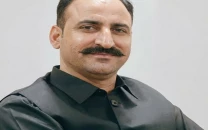
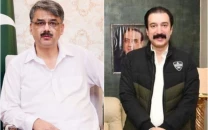
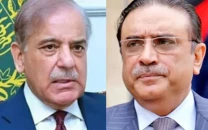
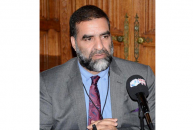
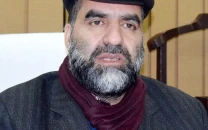
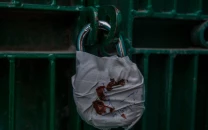












COMMENTS
Comments are moderated and generally will be posted if they are on-topic and not abusive.
For more information, please see our Comments FAQ